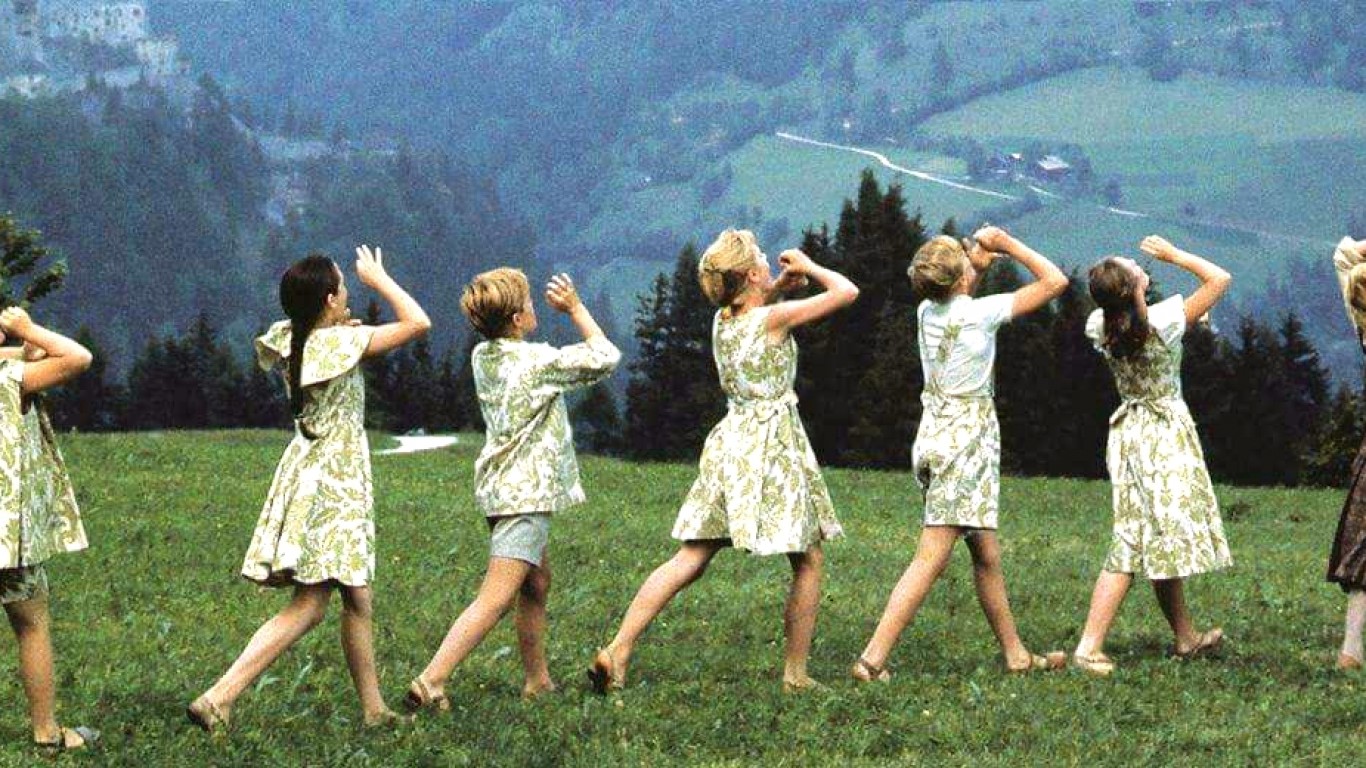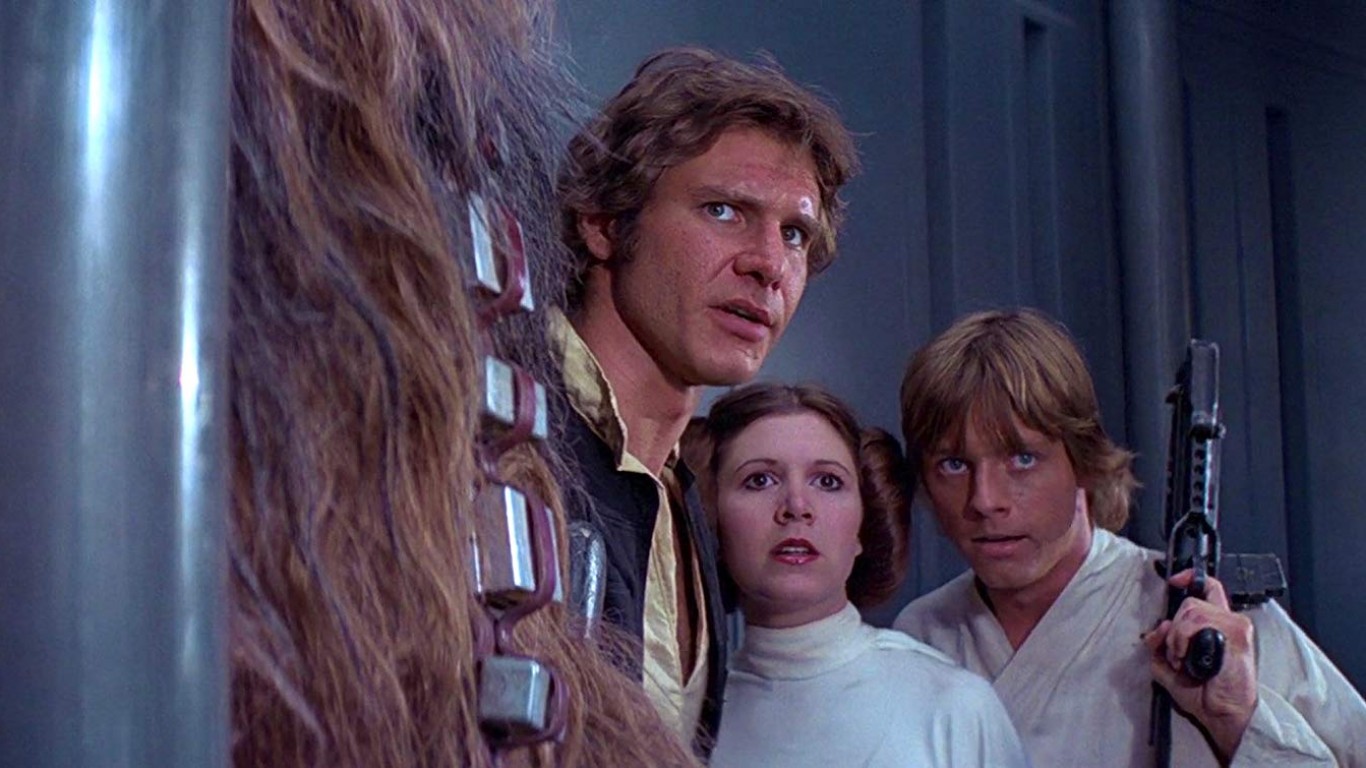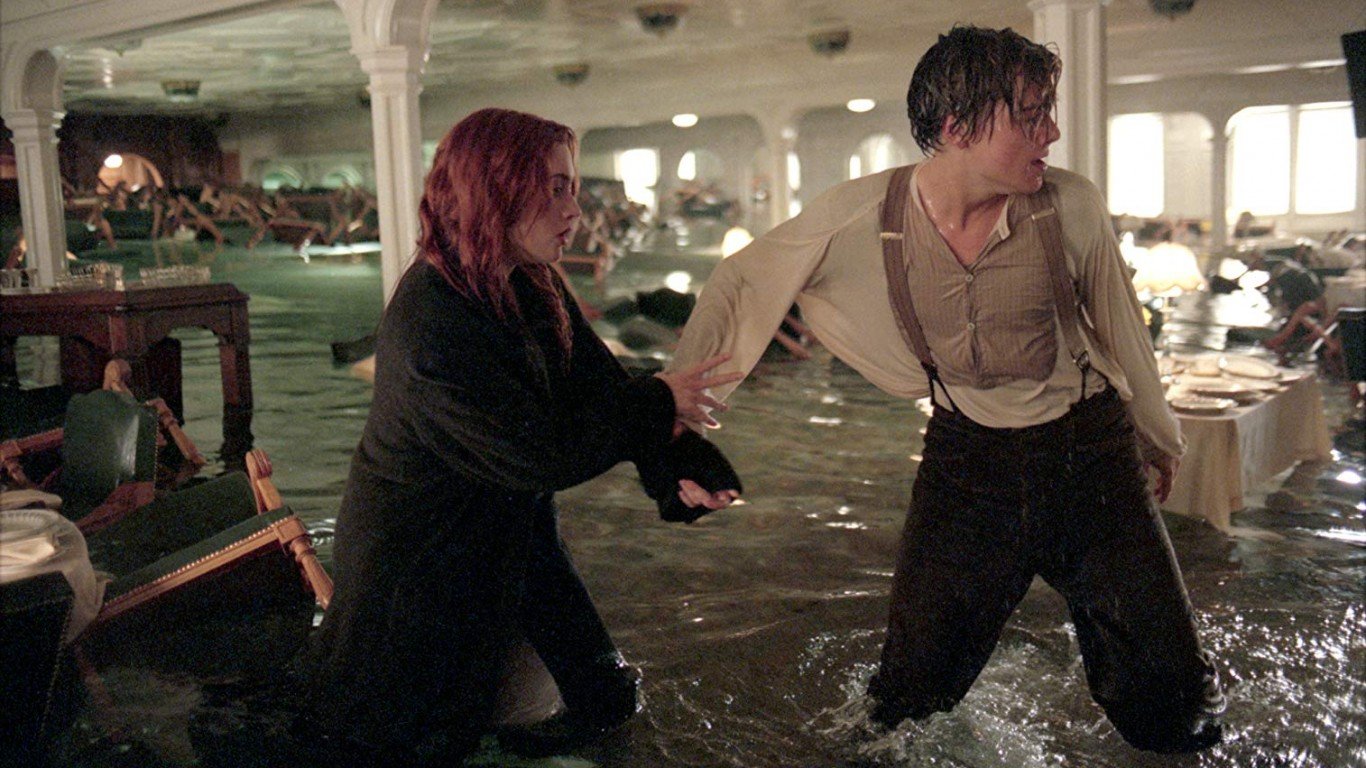Special Report
Cost of Going to the Movies Over the Years

Published:
Last Updated:

Despite declining movie theater attendance – 2017 ticket sales were the lowest in over two decades – this year’s domestic box office is set to rake in more than $12 billion for the first time ever. This is thanks in large part to the rising price of movie tickets, which now cost an average of nearly $9 nationwide, according to the National Association of Theatre Owners.
In 1948, a movie ticket cost a mere $0.36, or $2.88 when adjusted for inflation. The cost of movie tickets has increased at a near-constant rate since that year and shows no signs of slowing down. When combined with the money spent on popcorn, soda, and candy – the prices of which have all outpaced inflation – a trip to the movies can now take a serious toll on one’s wallet.
Moviegoers are receiving some benefits in return for the rising costs. Many theaters deliver higher quality projection than ever before and frequently offer large format screens and 3D viewing options, according to the National Association of Theatre Owners. Seats and sightlines have also improved, and food and beverage services have expanded overall, with many theaters now offering alcoholic beverages.
24/7 Wall St. reviewed movie ticket prices for each year since 1948, and calculated the average for each decade. We also included the top-grossing movie of each decade.
Click here to see the cost of a movie ticket over the years.
Click here to see our methodology.

1940s
> Avg. ticket price: $0.41
> Price adjusted for inflation: $3.30
> Top-grossing movie of the year: Bambi
[in-text-ad]

1950s
> Avg. ticket price: $0.56
> Price adjusted for inflation: $3.93
> Top-grossing movie of the year: Lady and the Tramp

1960s
> Avg. ticket price: $1.02
> Price adjusted for inflation: $6.01
> Top-grossing movie of the year: The Sound of Music

1970s
> Avg. ticket price: $1.98
> Price adjusted for inflation: $7.58
> Top-grossing movie of the year: Star Wars Ep. IV: A New Hope

1980s
> Avg. ticket price: $3.42
> Price adjusted for inflation: $6.97
> Top-grossing movie of the year: ET: The Extra-Terrestrial
[in-text-ad]

1990s
> Avg. ticket price: $4.39
> Price adjusted for inflation: $6.59
> Top-grossing movie of the year: Titanic

2000s
> Avg. ticket price: $6.36
> Price adjusted for inflation: $7.81
> Top-grossing movie of the year: Avatar

2010s
> Avg. ticket price: $8.27
> Price adjusted for inflation: $8.65
> Top-grossing movie of the year: Star Wars Ep. VII: The Force Awakens
Methodology
To find the cost of a movie ticket the year you were born, 24/7 Wall St. reviewed cost data for each year since 1948 provided by the National Association of Theatre Owners. The prices from 1989 onward have been calculated, according to the theater group, “by dividing actual revenue (net of taxes, passes and voids) by actual number of tickets sold by survey respondents, which must include the 10 largest U.S. companies and 60% of the total screens in the U.S at a minimum.” Prior to 1989, ticket prices were based on the Consumer Price Index For Urban Wage Earners And Clerical Workers from the Bureau of Labor Statistics. We used the most recent data available for each year as provided by the National Association of Theatre Owners.
Inflation-adjusted prices were calculated by 24/7 Wall St. using the Bureau of Labor Statistics’ Consumer Price Index. The top-grossing movie released in each calendar year, ranked by total domestic box office, came from movie industry data site The Numbers.
Where average ticket prices are displayed by decade, only available pricing data was included. For this reason, some decades are missing price data for certain years. The film chosen to represent each decade is the top-grossing movie of the relevant decade.
A financial advisor can help you understand the advantages and disadvantages of investment properties. Finding a qualified financial advisor doesn’t have to be hard. SmartAsset’s free tool matches you with up to three financial advisors who serve your area, and you can interview your advisor matches at no cost to decide which one is right for you. If you’re ready to find an advisor who can help you achieve your financial goals, get started now.
Investing in real estate can diversify your portfolio. But expanding your horizons may add additional costs. If you’re an investor looking to minimize expenses, consider checking out online brokerages. They often offer low investment fees, helping you maximize your profit.
Thank you for reading! Have some feedback for us?
Contact the 24/7 Wall St. editorial team.